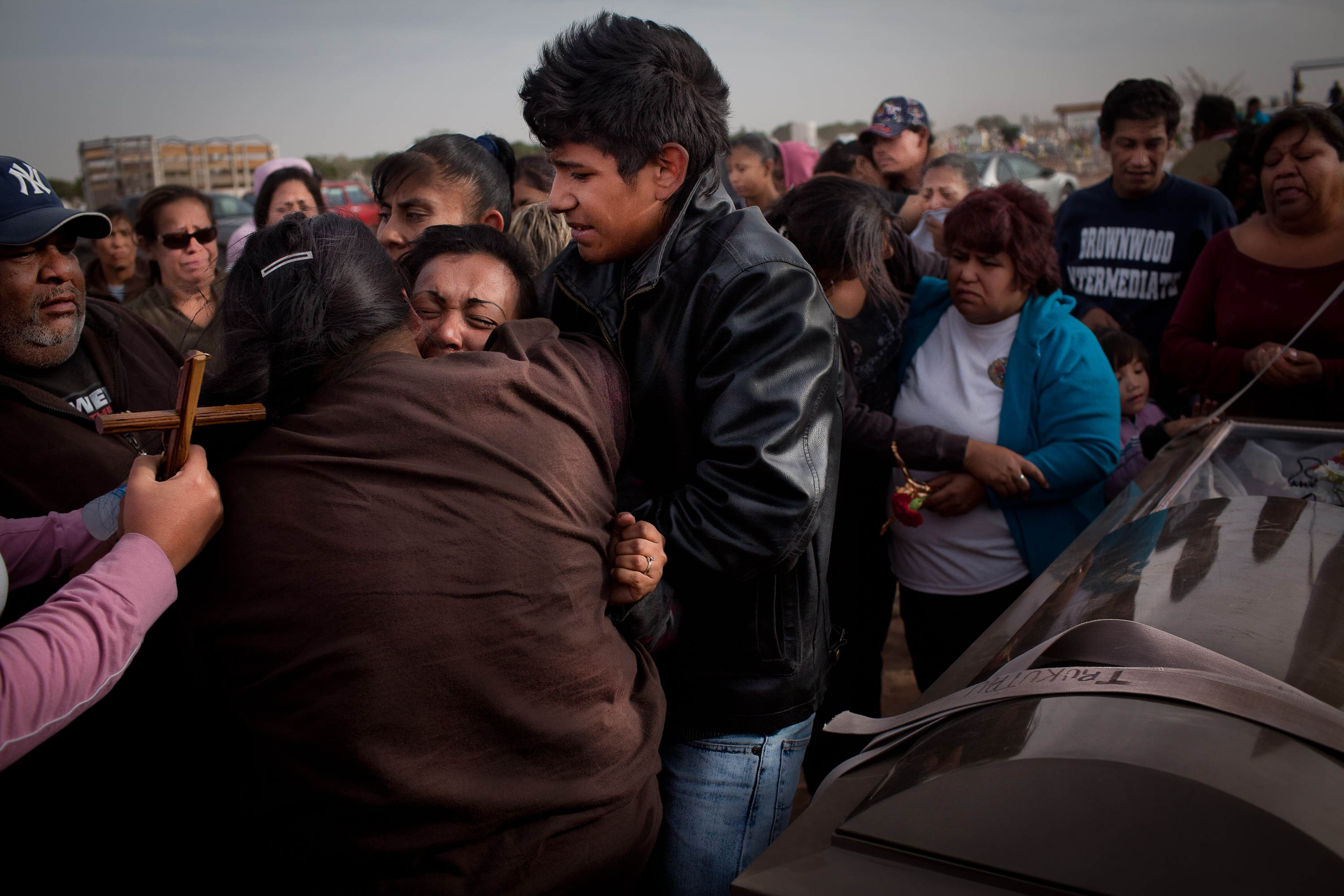
"Juarez is safe, you don't have anything to worry about. We don't have 52 people being burned alive like in the casino in Monterrey," said a waiter wryly as he served me a cup of coffee.
Behind us a large TV screen was broadcasting a speech by President Felipe Calderon at the scene of the arson attack, giving a message of mourning a day after the terrible incident.
This was in August 2011, and this scene, with the waiter smiling and the President grieving, has replayed in my head for months.
Back in Juarez, on that hot August morning, I sipped more coffee. And then it hit me. Beyond killing thousands, the unending spiral of violence raging in several parts of Mexico is changing the psyche of people here. Mexicans have been bombarded with gruesome stories since Calderon took office five years ago and declared war on Mexico's drug cartels.
After much pressure, the Mexican government announced earlier this year that nearly 48,000 people had been killed in drug-related violence since Calderon deployed the army and federal forces to fight the cartels. Some analysts say the death toll may be much higher.
It's hard to keep up with the mounting ejecutometro or "execution meter," as the death toll is known in the daily Reforma, the stories delivering the faceless forensic facts – the ones that make international headlines – describing the finding of yet another mass grave or the latest dumping of bodies in once safe cities like Veracruz or Guadalajara.
"Behind the headlines and the cold statistics, in communities like Juarez people are suffering from post-traumatic stress disorder, and if they haven't had direct contact with violence they may be suffering from vicarious PTSD," said Yolanda Mena, a psychotherapist who tended to relatives of the 17 high school students gunned down at a birthday party in the Villas de Salvarcar massacre in Juarez on January 31, 2010.
Mena was then working at the Center for Attention to Victims of Crime at the Attorney General's Office in Mexico City. A couple of days after the massacre, she was sent to Juarez to assist local therapists who were completely overwhelmed. Juarez would have more than 3,000 murders that year, earning the border city the nickname of "murder capital of the world."
Mena, who now runs a private practice, said the youth and poverty of the victims in Juarez is what disturbed her most.
"The increasing level of violence across Mexico is transforming our capacity to feel astonished or shocked, and this was never part of daily life, for young kids or for anyone," Mena told me as she lit a cigarette and looked out from the safety of her office onto a crowded Mexico City street, which has seen very little drug-related violence compared to places like Juarez or Monterrey.
While Mena was on her way to Villas de Salvarcar to attend to grieving families, she recalled seeing something "almost as shocking as hearing the gunfire...seeing the reaction of the people around me, as if they were not part of this scenario. There was no longer any surprise, there was no astonishment."
Mena said that people respond with indifference due to the frequency of the violent events. The indifference may be a defense mechanism, she explained.
Javier Sicilia, a poet turned activist after his 24-year-old son was murdered along with six others in March 2011, is creating awareness and chipping away at indifference as he leads a national movement against the drug war.
But speaking out against the violence can often lead to death, as activist Marisela Reyes Salazar knows all too well. She is in hiding in Mexico City after six of her relatives were killed in the Juarez valley. The Reyes Salazar family ran a bakery in Guadalupe near Juarez and had often spoken out on a variety of subjects – from the high cost of electricity to the killing of women in Juarez in the 1990s.
The turning point came when the military was deployed in the drug war and the family alleged that soldiers were barging into homes and stealing food from locals.
Salazar's sister, Josefina, started filing regular complaints on military abuses and protesting the militarization of Chihuahua state, where Juarez is located. Josefina's son, Julio Cesar Reyes, was killed at a party in November 2009, presumably as a warning to Josefina. Josefina herself was gunned down on Jan. 3, 2010. More killings followed as Josefina's brother, Ruben, was killed in August 2010, after demanding justice for his sister and nephew's killings. On Feb. 7, 2011, three more members of the family were kidnapped, their bodies later found dumped by the side of the road, but only after Marisela, her mother Sara and sister Claudia held a hunger strike to demand answers about their disappearance.
"We never asked for this war. It's a war against the cartels, but the people, like my family, are the ones (burying) the bodies," Marisela Reyes told me from her Mexico City hideout in December. A month later, she filed for political asylum in the US, something she was reluctant to do because she considers the demand for drugs in the US to be inextricably linked to the violence in Mexico.
"The indifference to the violence is unexplainable," Marisela said as her eyes welled up. "We have talked about what's happened to our family. But people's hearts don't soften. People think they are exempt, that it will never happen to them. Not to the Reyes family, not to a poet like Javier Sicilia, or to the American ICE agent Jaime Zapata, (but) it's happening to all of us, to the rich as well as the poor. How much more do people need to see to stop the apathy?"





